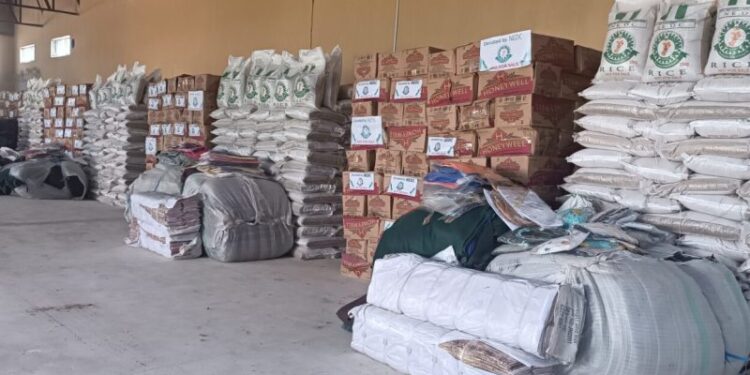The North East Development Commission (NEDC) has distributed relief materials to communities that were affected by flooding and insurgency in Yobe recently.
The State Coordinator of the Commission, Mr Ali Abbas, made this known during the handover of the items to benefiting communities in Damaturu on Saturday.
He said the gesture was on behalf of NEDC Managing Director, Alhaji Mohammed Alkali, who is working closely with Gov. Mai Mala Buni on humanitarian and development interventions in Yobe.
“You may recall that recently, we experienced flooding, as well as insurgent attacks in Mafa community in Tarmuwa Local Government.
“The MD and his team visited these sites last week to inspect the situation and communicate with the affected people,” Abbas said.
He added that the MD instructed the commission to distribute food and non-food items to the affected communities to fill the gaps in the government’s efforts.
Abbas listed the donated items to include two hundred 25kg bags of rice, two hundred cartons each of macaroni and spaghetti, and two hundred pieces of blankets.
Others were two hundred pieces of nylon mats, two hundred pieces of shadda for men, two hundred pieces of women’s wrappers, and two hundred pieces of children’s wear.
According to him, the flood-affected communities included Jumbam, Wagir, Nangere, Nguru, Kaligari, and Mafa, a community recently attacked by insurgents.
Alhaji Mala Musty, a representative of Tarmuwa Local Government people, expressed appreciation for the gesture.
He appealed for more support from other sympathisers within and outside the state, saying the devastation was significant and the people were in desperate need. (NAN)











